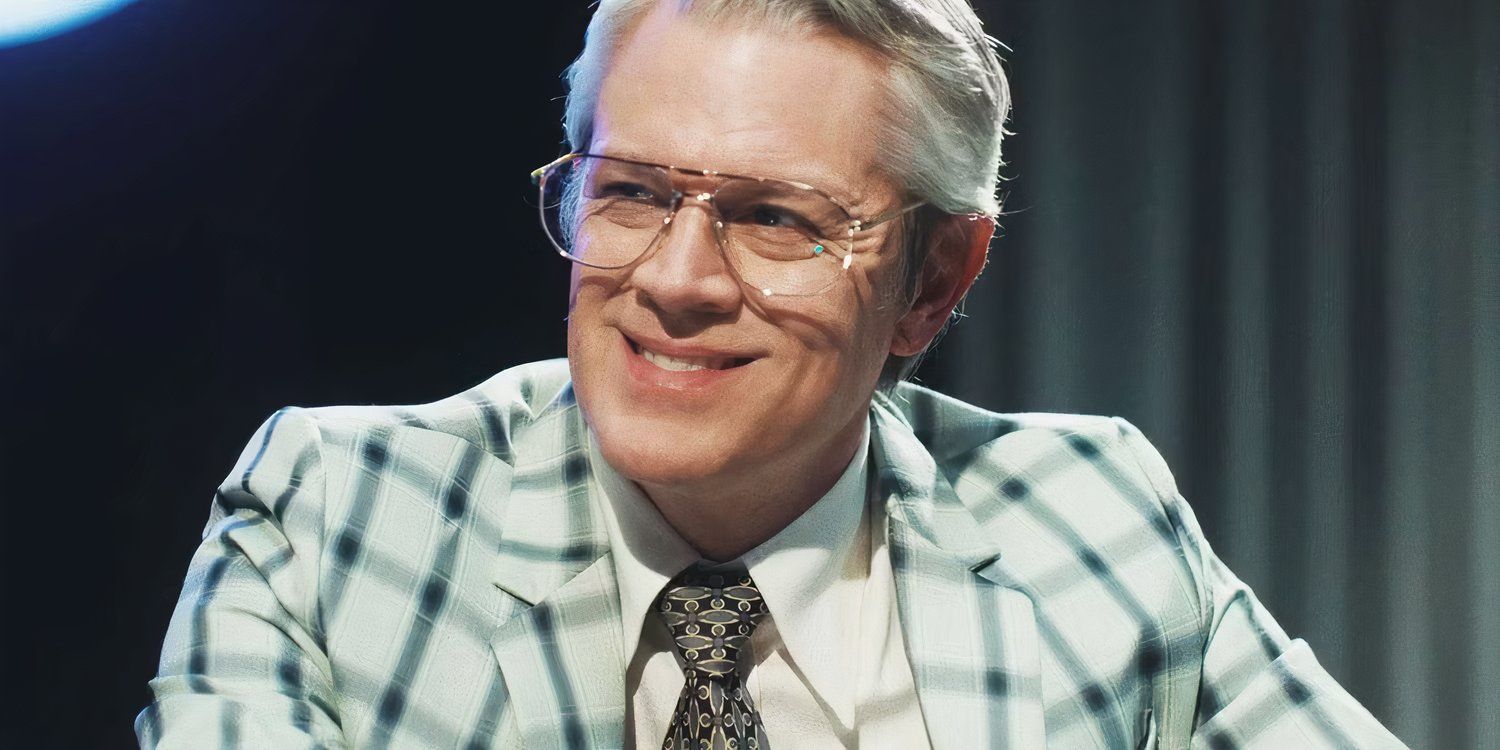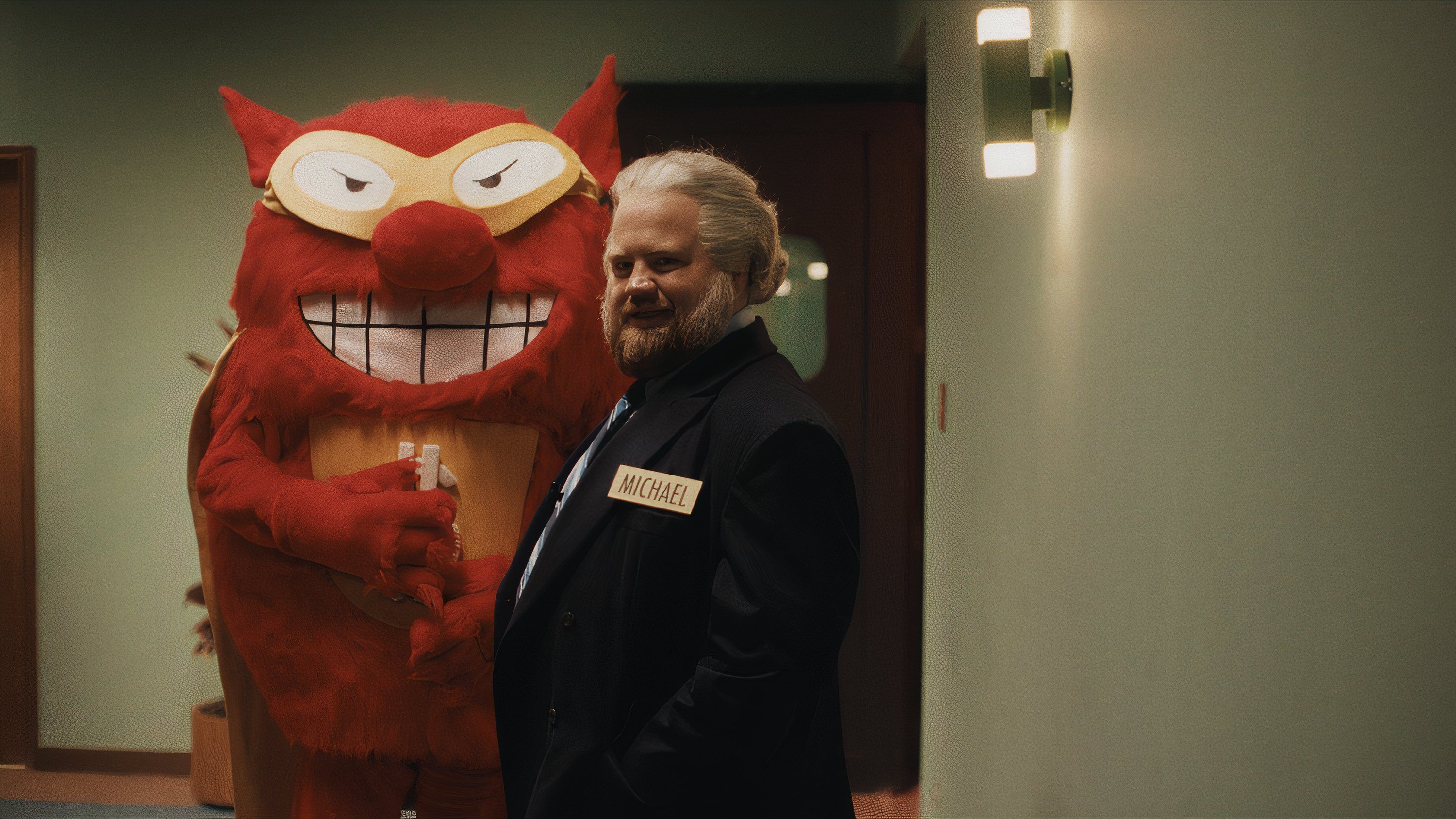The Luckiest Man in America
is a revelatory character study by one of our finest character actors. Paul Walter Hauser brings Maggie Briggs’ script to life along with co-writer and director Samir Oliveros. The real-life story of Michael Larson, who goes on a game show and upends CBS for a day in 1984, is fascinating and engineered with precision without sacrificing levity. It plays like an office thriller with an unreliable narrator at the center. There’s a little Talented Mr. Ripley, but with none of the sleek appeal. The film isn’t necessarily gritty, but there is a salt-of-the-earth quality to the production that grounds everything.
The film has legitimate style, and both the live action and visual effects render a believable 1980s with a flair unto itself. Though the film heavily relies on letting us know what decade it’s set in, it’s all in service of the story. Anderson’s hair is as funny as it is perfect for his character, and the title sequence is very subtle and evokes classic cinema of the time. Paired with the incredible score by John Carroll Kirby, there are moments where you feel like you’re in a cigar lounge. The script is built on tension, but The Luckiest Man in America has gorgeous moments of calm as well.
The Luckiest Man In America Is A Masterclass In Acting
Paul Walter Hauser’s Talent Will Not Be Denied
The Luckiest Man In America is yet another display of Hauser’s incomparable acting ability. Though he’s played the misunderstood loser before, he continues to find new elements within those characters. As Michael, Hauser plays it with a familiar sinister undertone, but there is true kindness behind his eyes. As the plot reveals itself, his tenor makes more and more sense. Hauser’s ability to play empathy as a note rather than a song is magnificent. The actor is truly a five-tool player; when the restraints come off and he is allowed to run wild, we know we’re in safe hands.
The supporting cast is full of actors you know, and actors you don’t know you know yet. The lovable Ed (Brian Geraghty) and the petty Janie, wonderfully portrayed by Patti Harrison, sit beside Michael as his co-contestants for most of the film. Sadly, Harrison doesn’t get much screen time, but her energy is always felt. Geraghty has always been reliable as a moral compass, but in The Luckiest Man In America, he is not righteous so much as he’s the only character who feels bad for Michael. He’s a perfect foil for the character as Ed tries to understand and Janie refuses to hide her aggravation.
The Luckiest Man In America Could Have Been Longer
If Only To Give Some Of The Supporting Characters More Screentime
There aren’t many glaring weaknesses in The Luckiest Man in America. The film has a forgiving 90-minute runtime, but as a result, the supporting cast doesn’t get as much time to shine. On the other hand, the film is essentially a thriller insofar as everyone with a headset is on a timer and Hauser’s character has the bomb. In this regard, some of the editing and the short runtime might have hindered the film. There is enough meat on the bone here for us to have seen more of Shamier Anderson (who plays Chuck) and Harrison while also giving more space for chaotic energy in the booth with Bill Carruthers’ David Strathairn.
…when you walk away from a 90-minute movie wishing it was longer, that 90-minute movie is doing something very right.
The Luckiest Man in America has a great cast, including Walton Goggins, great music, and a tone that fits all those things perfectly. The script doesn’t rely on twists to surprise you; rather, the film itself trusts that Hauser can make an average scene good and a good scene great. Audiences will be pleased to see reliable actors like Strathairn go toe to toe with lesser-known performers like Anderson, who not only holds his own but makes a strong case for being in the film longer. But when you walk away from a 90-minute movie wishing it was longer, that 90-minute movie is doing something very right.


